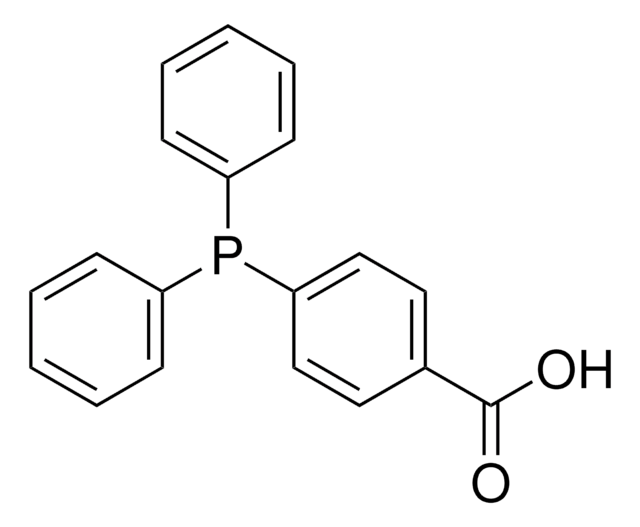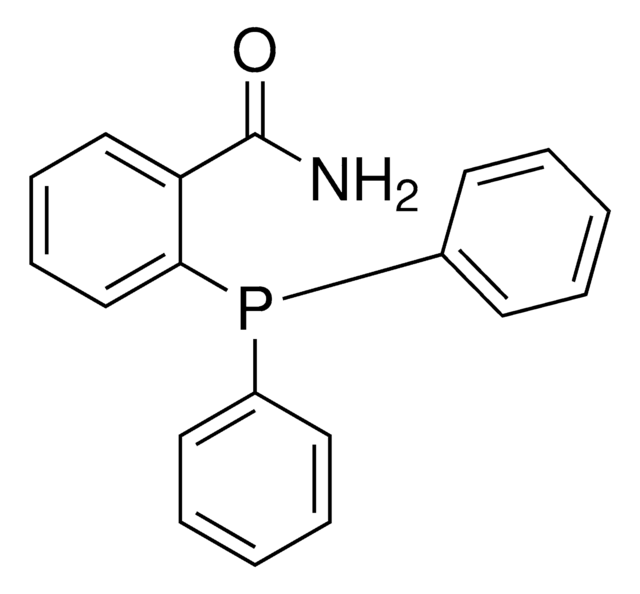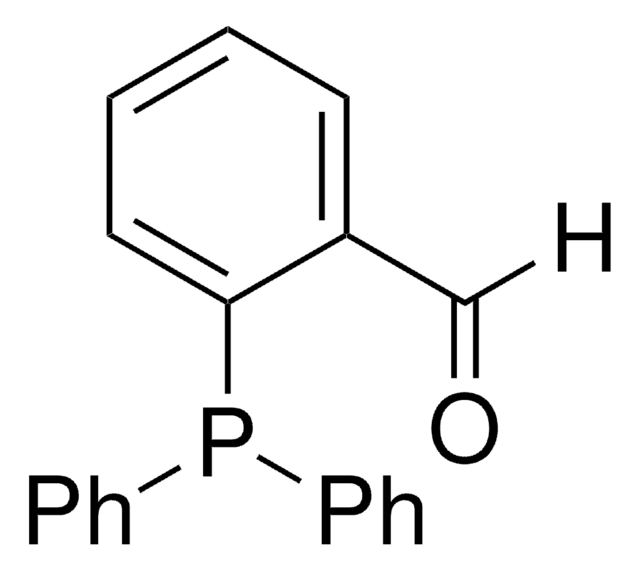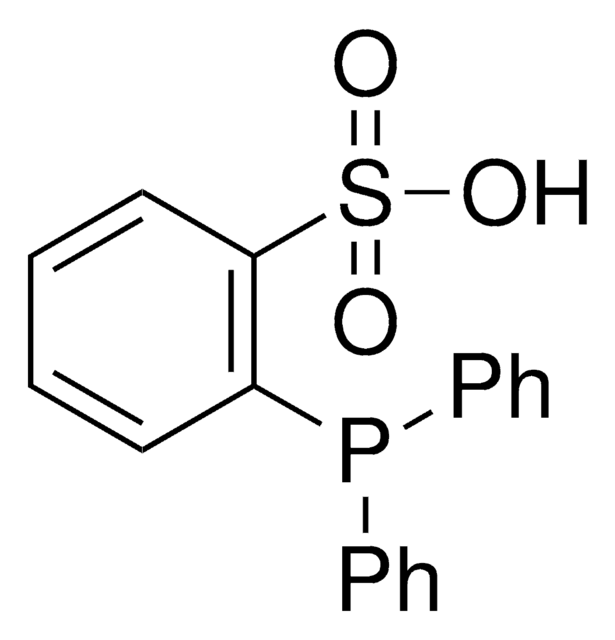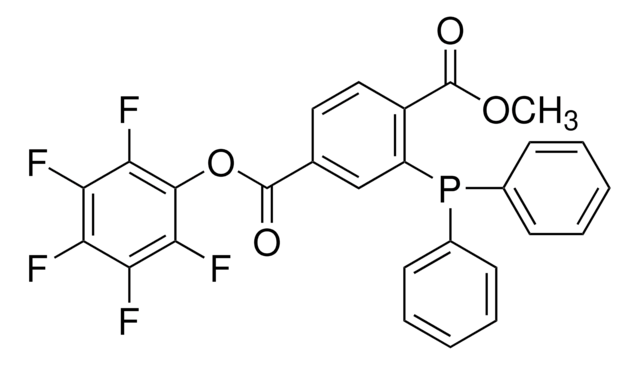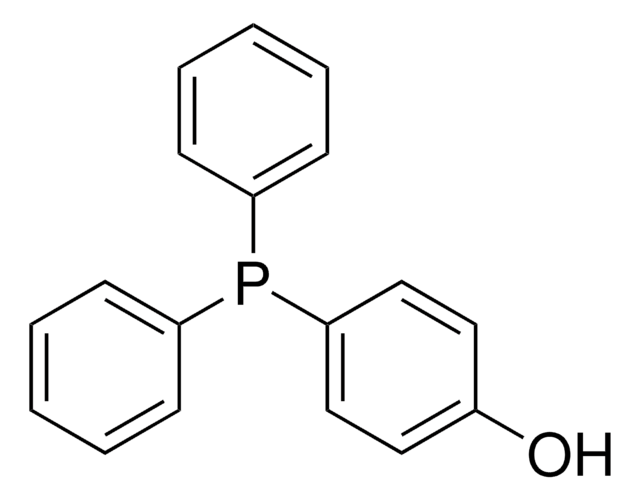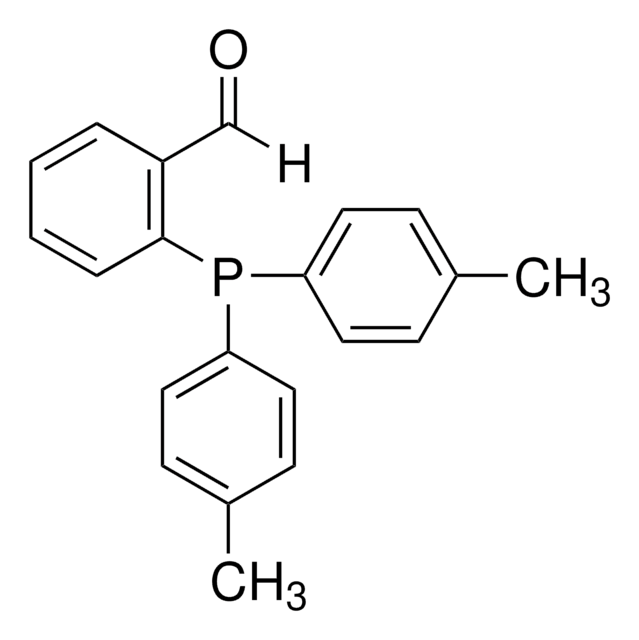454885
2-(Diphenylphosphino)benzoic acid
97%
Synonym(s):
(2-Carboxyphenyl)diphenylphosphine
About This Item
Recommended Products
Quality Level
Assay
97%
reaction suitability
reaction type: Buchwald-Hartwig Cross Coupling Reaction
reaction type: Heck Reaction
reaction type: Hiyama Coupling
reaction type: Negishi Coupling
reaction type: Sonogashira Coupling
reaction type: Stille Coupling
reaction type: Suzuki-Miyaura Coupling
mp
174-181 °C (lit.)
functional group
phosphine
SMILES string
OC(=O)c1ccccc1P(c2ccccc2)c3ccccc3
InChI
1S/C19H15O2P/c20-19(21)17-13-7-8-14-18(17)22(15-9-3-1-4-10-15)16-11-5-2-6-12-16/h1-14H,(H,20,21)
InChI key
UYRPRYSDOVYCOU-UHFFFAOYSA-N
Related Categories
related product
Signal Word
Warning
Hazard Statements
Precautionary Statements
Hazard Classifications
Acute Tox. 4 Inhalation - Eye Irrit. 2 - Skin Irrit. 2 - STOT SE 3
Target Organs
Respiratory system
Storage Class Code
11 - Combustible Solids
WGK
WGK 3
Flash Point(F)
Not applicable
Flash Point(C)
Not applicable
Personal Protective Equipment
Regulatory Listings
Regulatory Listings are mainly provided for chemical products. Only limited information can be provided here for non-chemical products. No entry means none of the components are listed. It is the user’s obligation to ensure the safe and legal use of the product.
JAN Code
454885-1G:
454885-BULK:
454885-VAR:
454885-5G:
Choose from one of the most recent versions:
Already Own This Product?
Find documentation for the products that you have recently purchased in the Document Library.
Our team of scientists has experience in all areas of research including Life Science, Material Science, Chemical Synthesis, Chromatography, Analytical and many others.
Contact Technical Service